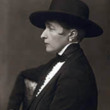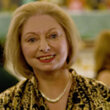Fingersmith
(Libby/OverDrive eBook, Kindle)
Available Platforms
Description
More Details
Similar Titles From NoveList
Similar Authors From NoveList
Published Reviews
Booklist Review
Waters' third novel, set in Victorian England, opens when Sue Trinder, an orphan raised by a band of thieves, is recruited by Richard Rivers, a con man known as Gentleman, to help him in his quest to marry Maud Lilly, an heiress living in isolation in the country with her eccentric uncle. Maud stands to inherit a small fortune when she marries, and Gentleman intends to marry her, steal her inheritance, and imprison her in a madhouse. Sue agrees to pose as a maid to Maud and to gain her confidence. But Sue finds Maud sweet and trusting, and, to her surprise, she begins to fall in love with Maud and have serious misgivings about Gentleman's plan. But Sue only knows a small part of the scheme, and it will affect both her and Maud in ways she does not realize. The intricate plotting and startling revelations will keep the reader enthralled, rapidly turning the pages to get to the exciting conclusion. Waters' gripping, engrossing thriller would make the Victorian master of suspense, Wilkie Collins, proud. --Kristine Huntley
School Library Journal Review
Raised by a loving clan of thieves, orphan Sue Trinder must take her turn to make the gang's fortune. Her mission: help a professional rogue marry an heiress and then steal the girl's inheritance by declaring her insane. Sue wants to please her adoptive mother and friends, but once she's confronted with the seemingly hapless victim, Maud, she begins to have doubts. © Copyright 2016. Library Journals LLC, a wholly owned subsidiary of Media Source, Inc. No redistribution permitted.
Library Journal Review
In Victorian London, the orphaned Sue Trinder is raised by Mrs. Sucksby, den mother to a family of thieves, or "fingersmiths." To repay Mrs. Sucksby's kindness, Sue gets involved in a scam but soon regrets it. From the award-winning author of Tipping the Velvet. (c) Copyright 2010. Library Journals LLC, a wholly owned subsidiary of Media Source, Inc. No redistribution permitted.
Kirkus Book Review
Imagine a university-educated lesbian Charles Dickens with a similarly keen eye for mendacity and melodrama, and you'll have some idea of the pleasures lurking in Waters's impudent revisionist historicals: Tipping the Velvet (1999), Affinity (2000), and now this richly woven tale of duplicity, passion, and lots of other good stuff. It begins as the narrative of 17-year-old Susan Trinder, an orphan resident of the criminal domicile run by Hogarthian Grace Sucksby, a Fagin-like "farmer" of discarded infants and den-mother to an extended family of "fingersmiths" (i.e., pickpockets) and assorted confidence-persons. One of the latter, Richard Rivers (a.k.a. "Gentleman"), engages Susan in an elaborate plot to fleece wealthy old Mr. Lilly, a connoisseur of rare books-as lady's maid "Susan Smith" to Lilly's niece and ward Maude, a "simple, natural" innocent who will be married off to "Mr. Rivers," then disposed of in a madhouse, while the conspirators share her wealth. Maidservant and mistress grow unexpectedly close, until Gentleman's real plan-a surprise no reader will see coming-leads to a retelling of events we've just witnessed, from a second viewpoint-which reveals the truth about Mr. Lilly's bibliomania, and discloses to a second heroine that "Your life was not the life that you were meant to live." (Misdirections and reversals are essential components of Waters's brilliant plot, which must not be given away.) Further intrigues, escapes, and revelations climax when Susan (who has resumed her place as narrator) returns from her bizarre ordeal to Mrs. Sucksby's welcoming den of iniquity, and a final twist of the knife precipitates another crime and its punishment, astonishing discoveries about both Maude and Susan (among others), and a muted reconciliation scene that ingeniously reshapes the conclusion of Dickens's Great Expectations. Nobody writing today surpasses the precocious Waters's virtuosic handling of narrative complexity and thickly textured period detail. This is a marvelous novel.
Booklist Reviews
Waters' third novel, set in Victorian England, opens when Sue Trinder, an orphan raised by a band of thieves, is recruited by Richard Rivers, a con man known as Gentleman, to help him in his quest to marry Maud Lilly, an heiress living in isolation in the country with her eccentric uncle. Maud stands to inherit a small fortune when she marries, and Gentleman intends to marry her, steal her inheritance, and imprison her in a madhouse. Sue agrees to pose as a maid to Maud and to gain her confidence. But Sue finds Maud sweet and trusting, and, to her surprise, she begins to fall in love with Maud and have serious misgivings about Gentleman's plan. But Sue only knows a small part of the scheme, and it will affect both her and Maud in ways she does not realize. The intricate plotting and startling revelations will keep the reader enthralled, rapidly turning the pages to get to the exciting conclusion. Waters' gripping, engrossing thriller would make the Victorian master of suspense, Wilkie Collins, proud. ((Reviewed February 1, 2002)) Copyright 2002 Booklist Reviews
Library Journal Reviews
In Victorian London, the orphaned Sue Trinder is raised by Mrs. Sucksby, den mother to a family of thieves, or "fingersmiths." To repay Mrs. Sucksby's kindness, Sue gets involved in a scam but soon regrets it. From the award-winning author of Tipping the Velvet. Copyright 2001 Cahners Business Information.
Library Journal Reviews
Raised by a loving family of thieves, orphan Sue Trinder is sheltered from the worst of the seamy Victorian underworld until it becomes her turn to make her clan's fortune. She must help a professional rogue named Gentleman marry an heiress and then steal the poor girl's inheritance by declaring her insane. Sue wants to please her adoptive mother and friends and persuades herself that she can do the job, but once she's confronted with the seemingly hapless victim, Maud, she begins to have doubts. Sue and Maud's connection is just one reason the scam quickly falls apart. Each clearly drawn character is ensnared by secrets and lies that force his or her actions, and everyone is both a predator and a victim. As in her earlier works (e.g., Affinity), Waters slowly and inexorably builds the tension in this hard-to-put-down novel, which is full of atmospheric details about grand houses, petty slums, and Victorian madhouses. Readers will turn the pages with delighted dread. [Previewed in Prepub Alert, LJ 10/1/01.] Devon Thomas, Hass Assocs., Inc., Ann Arbor, MI Copyright 2001 Cahners Business Information.
Reviews from GoodReads
Citations
Waters, S. (2002). Fingersmith . Penguin Publishing Group.
Chicago / Turabian - Author Date Citation, 17th Edition (style guide)Waters, Sarah. 2002. Fingersmith. Penguin Publishing Group.
Chicago / Turabian - Humanities (Notes and Bibliography) Citation, 17th Edition (style guide)Waters, Sarah. Fingersmith Penguin Publishing Group, 2002.
Harvard Citation (style guide)Waters, S. (2002). Fingersmith. Penguin Publishing Group.
MLA Citation, 9th Edition (style guide)Waters, Sarah. Fingersmith Penguin Publishing Group, 2002.
Copy Details
| Collection | Owned | Available | Number of Holds |
|---|---|---|---|
| Libby | 4 | 0 | 1 |




































